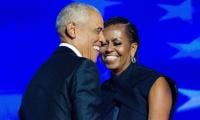Businessmen long for concrete actions in post-100 innings
KARACHI: Businessmen have not seen any concrete action by the Pakistan Tehreek-e-Insaaf government during its 100-day stint after the elections that can lead to export enhancement and import substitution, but they are still willing to give new team more time to fulfill its promises.
“100-day period is a very little time, not enough for a turnaround,” Mazhar Ali Nasir, senior vice president of the Federation of Pakistan Chambers of Commerce and Industry (FPCCI) said. “We are willing to give more time and see if they (government) could come up with a workable plan, a clear direction.”
Nasir said the government took some short-term measures to facilitate a niche of industry.
“We cannot see a clear direction yet as there has been no word on reducing cost of doing business and improving ease of doing business.”
Textile exports remained flat at $4.4 billion in the four months (July-October) despite a 3.4 percent jump in exports of value-added products on Christmas demand.
“Pakistan’s textile exporters are expected to pick up on the back of recently introduced incentives: reduced electricity and gas rates as well as rupee devaluation and improved access to international markets like China,” analyst Ayesha Ahmed at Taurus Securities said.
On new investment in the country’s industrial sector, Nasir of FPCCI said business community has adopted ‘wait and see’ policy for the time being.
“Local investors are not considering expansions and investments at the moment because of the uncertainty on all fronts,” he said. “Local businessmen invest and then we can expect foreign investment.”
FPCCI official also criticised secrecy on part of the government regarding special economic zones under the China Pakistan Economic Corridor. “Unless business community is aware of the policy regarding the special zones, there will be no investment and expansion plan,” he added.
An industrialist said textile sector has been sailing in rough seas for quite sometimes and there were lay-offs and closures. “The process of downsizing and industrial contraction accelerated in the last quarter, even big banners are retrenching staff,” the industrialist said, requesting anonymity.
SM Muneer, patron-in-chief of Korangi Association of Trade Industry said more than 80 percent industrial units have been closed in Faisalabad alone as the higher cost of doing business left local production uncompetitive in the international market. “Local products cannot even compete in the local market against cheap Chinese goods,” Muneer added.
Imports, which were $4.46 billion in August, rose to $4.72 billion in October, while exports that were recorded at $2.09 billion in August slipped a bit to $2.06 billion in October.
Consumer price inflation surged to 6.8 percent in October compared with 5.8 percent in August, while rupee-dollar parity clocked in at Rs134/dollar in October as against Rs124.04/dollar in August.
Chairman Pakistan Apparel Forum Jawed Bilwani said government should take measures to facilitate and support export-oriented industry.
“Though things have not improved much in the last 100 days, we hope things would get better going forward.”
The Pakistan Business Council said the government has got off to a good start, given the economic challenges it inherited. “However, there is a much scope to do better,” it said in a statement.
-
 Gabriel Diallo Vs Alexander Zverev: Rising Canadian Eyes Major Upset Opportunity
Gabriel Diallo Vs Alexander Zverev: Rising Canadian Eyes Major Upset Opportunity -
 Bo Nix Injury Update: Broncos Quarterback Fractures Ankle Against Bills
Bo Nix Injury Update: Broncos Quarterback Fractures Ankle Against Bills -
 Oilers Vs Canucks: Why Edmonton Is Without Leon Draisaitl
Oilers Vs Canucks: Why Edmonton Is Without Leon Draisaitl -
 49ers Crushed As Kenneth Walker III Leads Seahawks To 41-6 Win
49ers Crushed As Kenneth Walker III Leads Seahawks To 41-6 Win -
 Canadiens Star Lane Hutson Makes History With 100th NHL Assist
Canadiens Star Lane Hutson Makes History With 100th NHL Assist -
 Bridgerton’s Claudia Jessie Says Her Real-life Style Is Nothing Like Eloise’s
Bridgerton’s Claudia Jessie Says Her Real-life Style Is Nothing Like Eloise’s -
 Prince William Barred From Riding E-scooter At His Own Home!
Prince William Barred From Riding E-scooter At His Own Home! -
 Prince William New PR Step Is Not 'shrewed Move,' Says Expert
Prince William New PR Step Is Not 'shrewed Move,' Says Expert -
 Barack Obama Honours Michelle Obama On Her 62nd Birthday
Barack Obama Honours Michelle Obama On Her 62nd Birthday -
 Why Kate Middleton Runs Away From 'some Royal Relatives'
Why Kate Middleton Runs Away From 'some Royal Relatives' -
 Khloe Kardashian's Ex-husband Lamar Odom Arrested In Las Vegas
Khloe Kardashian's Ex-husband Lamar Odom Arrested In Las Vegas -
 Andrew Mountbatten Windsor Has Staff From 'big Brother' For All His Needs
Andrew Mountbatten Windsor Has Staff From 'big Brother' For All His Needs -
 Perrie Edwards And Alex Oxlade-Chamberlain Welcome Second Child
Perrie Edwards And Alex Oxlade-Chamberlain Welcome Second Child -
 Meryl Streep To Return In 'Mamma Mia 3'?
Meryl Streep To Return In 'Mamma Mia 3'? -
 James Cameron Weighs In On Debates He Still Has About 'Titanic' Raft Scene
James Cameron Weighs In On Debates He Still Has About 'Titanic' Raft Scene -
 'Star Wars' Director Speaks Out Against 'scared' Comment
'Star Wars' Director Speaks Out Against 'scared' Comment



